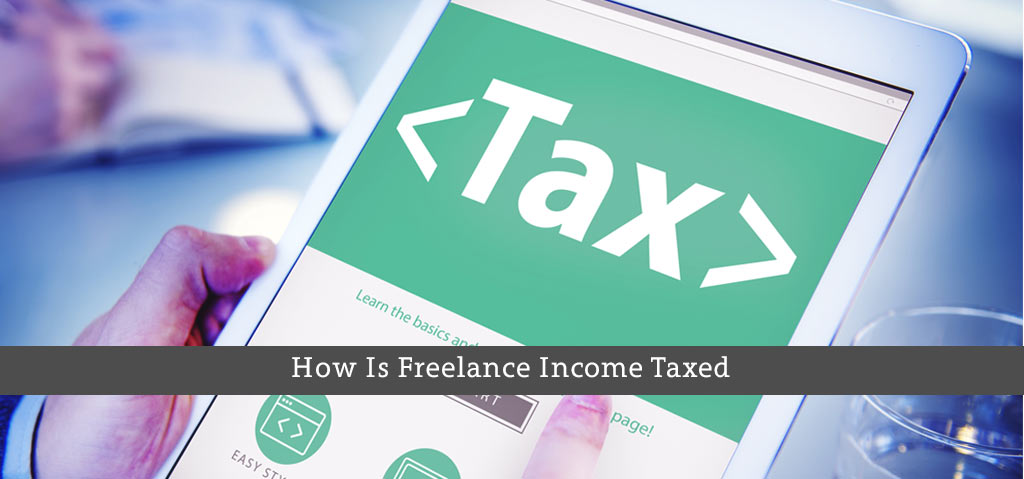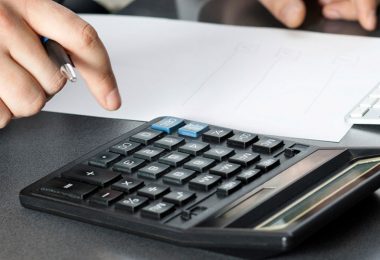
We all know freelancing income is nothing like our regular salaried income that is fixed and recurrent. Every month, freelancers’ earnings vary from few hundreds to tens or thousands. As a freelancer, you may want to know how a freelance income is taxed or what the minimum earning is freelancers need to earn, to file income taxes.
Let us make you aware of the freelance income taxes and how and when you should pay.
Freelancing Incomes That Are Taxable
Income Tax Act states: If an income from any profession that involves service and work, which also require use of skills (be it manual skill or intellectual skill), such income will be taxable under the head ‘Profits and Gains of Business and Profession’.
The sum of all the receipts generated for the services and work provided to your
clients is your income. As a freelancer, your clients can be based in India or abroad, can change each month and the services you offer may also differ each month.
However, your clients make payments towards the services and work rendered by you. They may transfer the amount via NEFT or IMPS, cheque or by cash.
If you do not have any receipt for the payment, you can use your bank statements and add up the entire amount credited by your clients to your account as work payment for your receipt. In case of cash payment, a receipt becomes mandatory.
Freelance Job Expenses That Are Deductible
A certain percentage of your freelance income can be deducted as expenses incurred in doing the job itself. The expenses could be anything from furniture, electronics, tools, transportation and gadgets. However, these expenses should be directly relating to your profession or work rendered.
Some of the points or rules that has to be kept in mind while deducting expenses include
- The expense should directly relate to the freelance work you are currently doing
- The expenses deducted should be spent fully and completely for the purpose of the work (INR 30,000 deducted for a new laptop by a content writer. The entire 30,000 should be spent on the laptop)
- You should have proper receipt or proof of the expense made
- The expenses deducted should be of the current tax year
- The expenses incurred should not be for any offensive purpose or that is prohibited by the law
- The income from which expenses are deducted should not be of Capital Expenditure or Personal Expenditure in nature of the freelancer, i.e., you.
Here are some expenses that can be categorized as deduction against freelance income:
1. Property Rent
Any property (room, house, workshop, restaurant kitchen, studio, condo, lawn etc.) for which rent is paid to carry your freelance work is allowed to be deducted from income.
2. Travel and Transportation
The cost incurred in traveling to meet clients or transporting things to work locations can be deducted from income.
3. Entertainment and Hospitality
When money is spent in business meets, client visits or with the sole intention to grow your existing or new business or freelance work can be deducted. Such expenses include dinner with clients, outings, site visits etc.
4. Repairs and Services
If you own a property for your work and you carry out repair works, the amount spent can be deductible.
If you have rented a property and have agreed on performing the repair and services, the repair cost can be deducted.
Any repairs to your work equipment or furniture such as laptop, camera, printer, etc are allowed for deduction.
5. Office Expenses
Office expenses that have been incurred to carry out your freelance work can be deducted. Such expenses include internet and phone bill, conveyance bill, salary to assistant, office supplies etc.
6. Depreciation
Capital assets are depreciated. What is Capital Asset? Any asset whose benefit or value is sure to last more than a year is termed as capital asset. Such assets are not charged as expenses or capitalised when they are brought.
However, each year a certain percentage of its cost is deducted from your income or expensed in the name of depletion or wear and tear. This expense that is deducted every year is called Depreciation.
Example: You buy a Camera worth INR 85,000 for your freelance photography work. The INR 85,000 will be considered your asset. Now assuming a straight line depreciation of 33.33% (this is a hypothetical rate) each year, a price amounting to INR 28, 330 will be expensed every year as capital asset depreciation.
Therefore, in 3 years, the asset will be considered fully depreciated.
Note: –
- There are several types of Asset and each asset type has different rate of depreciation and method of depreciation.
- The rates and method for each asset type have been laid out in detail in the Income Tax Act.
- Only those have to be applied.
7. Local taxes, insurance on properties and assets can be deducted
8. Website creation, domain registration, app development and other software purchased for your work are also considered as expenses
When Expenses Incurred Are Common To Both Personal and Professional Purposes
When you a buy laptop, you may use it for content writing and editing, but may also use it for your personal stuffs, like watching movies and playing games. How should you claim such expenses?
When assets are claimed or expenses are incurred for both professional and personal use, only a certain percentage of expenses and depreciation, and not full amount is allowed for deduction.
Here’s an example. Your mobile is used for making both personal and professional calls. Therefore only a reasonable amount of mobile bill will be attributed towards your freelance work.
However, some of the expenses that are explicitly not allowed for deduction from a freelancer’s income regulated by Income Tax Act include:
- Income tax paid by freelancer
- Payment made to relatives, including;
- Services, goods, and provisions received from relatives
- Payment to a relative (including spouse, ascendant and descendant of you and spouse) or to a person who holds 20% or more interest in equity or profits of your business
- If the payment is not directly related to your business
- If you actually gain a profit or get benefited from the payment made
- Payment made in cash above INR 20, 000
Note: Make sure any payment you make above INR 20, 000 should be done either by payee cheque, NEFT transfer or Demand Draft. Also make sure, all your payments and expenses should have a receipt against them.
Tax Pay For Freelancers
There are two types of accounting methods, one of which a freelancer can follow to record his income;
- Mercantile or Accrual Basis of Accounting
- Cash Basis of Accounting
In Accrual Basis, income and expenses are accounted when the right to receive payment or obligation arises. Whereas in case of Cash Basis income and expenses are accounted when the payment is actually received or when the amount is actually paid.
The accurate details of both accounting methods are laid out in Income Tax Act. However, a freelancer has to ensure to follow only one accounting method for all clients, revenues and expenses.
When a Freelancer Has To Pay Tax?
When the total tax liability exceeds INR 10,000 during a financial year, a freelancer becomes a tax payer and is required to pay tax, also known as Advance Tax every quarter.
How Should A Freelancer Calculate Advance Tax
- Add all your receipt and sum your total incomes
- Subtract all the expenses from the total income
- Add income from other sources such as rent from tenant, saving account credit etc.
- Now find out the tax slab for your income and calculate your tax due (after deducting TDS)
- If the Tax Due is more than INR 10,000 you are required to pay advance tax by every quarter as scheduled
(by 15th June – 15%; by 15th September – 45% of the total tax due; by 15th January – 75% of the total tax due and by 15th March – Whole or 100%)
Make sure by the end of the March 31st, your complete tax amount due for that financial year (INR 10,000 or more) should have been paid to avoid penalties laid under Section 234B and 234C
Paying Tax
There are two ways through which you can pay your taxes;
- Pay online at the I-T Department Website
- Deposit tax in your bank with a paper challan
GST for Freelancers
Earlier Freelancers used to pay VAT and Service Tax. Now GST has replaced them. On most services a GST of 18% is applied. So if you sell cookies, you have to apply 18% GST and if you are a freelance stylist, you have to charge 18% GST from clients.
The 18% that you invoice from clients should be given to the government.
If your average yearly turnover is more than INR 20 lakhs, you must register yourself under GST. You can make your GST payments online either quarterly or monthly.




